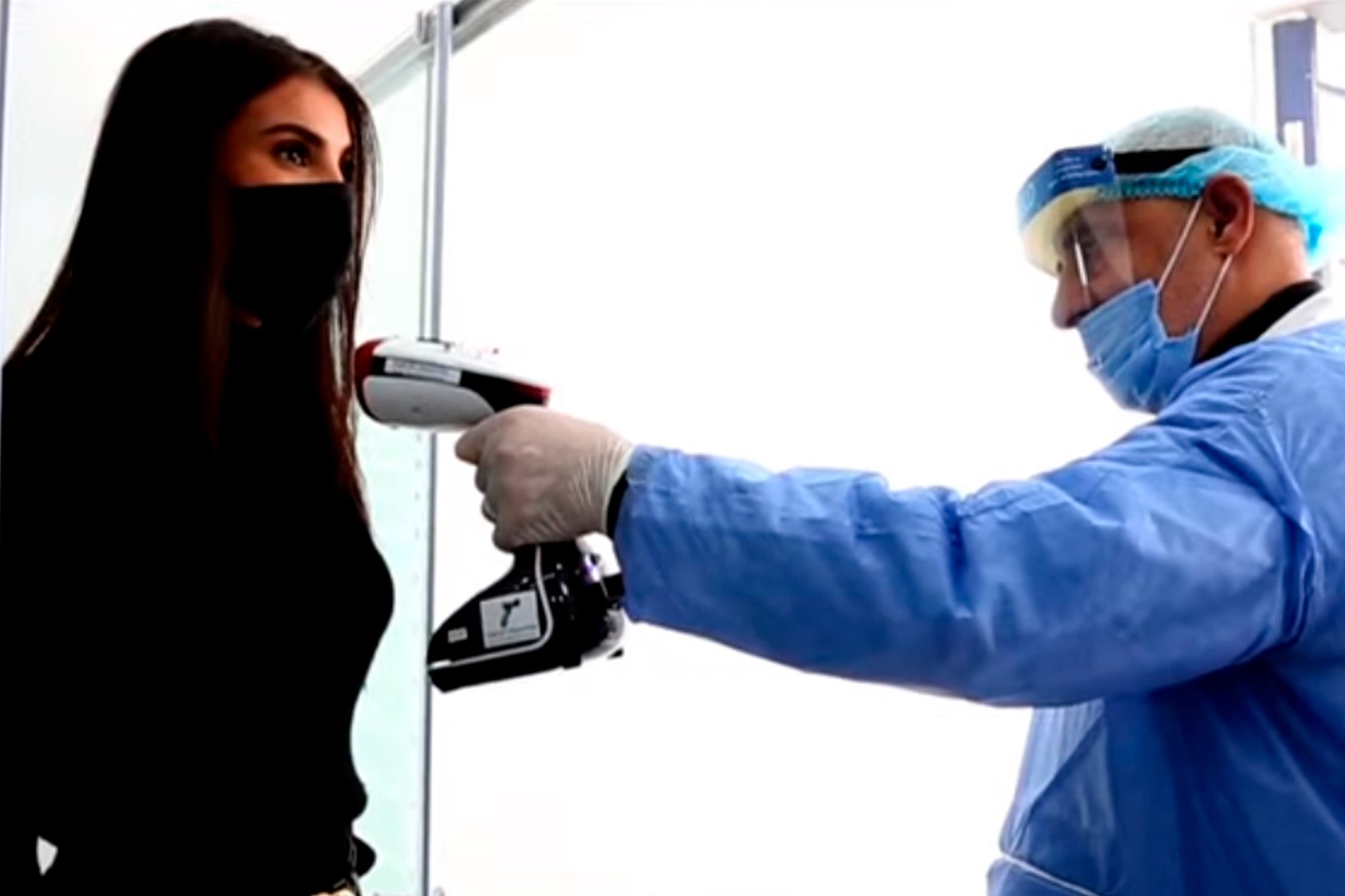Covid Hunter, the scanner that detects coronavirus in people and surfaces, will be manufactured in Mexico

January 31, 2021 5 min read
It is now possible to detect the coronavirus without testing, thanks to the Covid Hunter device, a scanner that identifies the presence of the SARS-CoV-2 virus immediately. The developers describe it as “the world’s first non-contact viral detector” and will be manufactured in Mexico .
The Covid Hunter , developed by the American company Advanced Medical Solutions International (AMSI ), is capable of detecting traces of coronavirus immediately in people and objects, without touching them. It can also identify new variants of COVID-19 and other viruses, such as influenza, the company reported in a statement.
“The Covid Hunter is a non-invasive, non-contact, immediate and portable virus detector, specially designed for the SARS-CoV-2 virus that causes covid-19 disease, demonstrating 99% effectiveness and with sensitivity within 0 to 2 meters on surfaces, through glass or transparent material , and inside the human body ” , explained the company.
The company detailed that the scanner can locate the coronavirus in various human organs , such as the lungs, throat, nose and skin, and even on clothing. Simply point the scanner at the object less than two meters away.
How does the Covid Hunter work?
At first glance, it looks like any ordinary laser scanner, but the beam it emits and its software analyze in real time, by refraction, if the spike protein of the SARS-CoV-2 virus is present . When the scanner identifies this protein, characteristic of the coronavirus , it emits an alert sound, and if there is no presence of COVID-19, it remains silent.
[embedded content]
The doctor Alejandro Díaz Villalobos , a specialist in immunology and allergies, is the only Mexican who is part of the project. The researcher also explained that the Covid Hunter has had a 100% efficiency level in the tests presented by the team. The device detected positive COVID-19 samples validated via PCR test , and also managed to differentiate between positive and negative patients.
Since the vaccine will take time to be applied to the entire world population, Díaz believes that the best way to contain the pandemic is prevention. Thus, the Covid Hunter would be a key tool for authorities and companies to detect the virus in real time in crowded areas such as restaurants, public transport, airports or similar.
“If we can immediately detect who is infected, we can mitigate their contact with other people or control their access ,” Diaz said in an interview with Forbes . The doctor added that, as the scanner locates the virus on surfaces or clothes, the disinfection work becomes 100% accurate.
The Covid Hunter will be Made in Mexico
Díaz Villalobos revealed that the team, made up of experts from Jordan and the United States, agreed that the manufacture and distribution of Covid Hunter will be in Mexico .
“You do not know the work it took to arrive and agree that Mexico was the country of manufacture,” revealed the Mexican researcher. He pointed out that they are in talks with several medical equipment manufacturing companies to finalize production details.
[embedded content]
The doctor pointed out that he hopes “to have the first production prototype in three weeks .” It foresees that when the first production is carried out, they can achieve certification from health authorities, such as the FDA in the United States and Cofepris in Mexico .
“I would ask Cofepris to allow us to move forward as quickly as possible with the entire process for authorization, especially because we are at the most critical point in the spread of the virus,” said Díaz.
The final price of the Covid Hunter has not been established, but they anticipate that it will be very affordable. The plan is to distribute the first units produced in the centers of high human concentration, so that later “this technology can reach everyone’s hands, because its objective is none other than to save human lives,” concluded the Mexican specialist.
https://www.entrepreneur.com/article/364500